Since December, and after Eskom CEO André de Ruyter resigned, power cuts have ramped up, with generating units at power stations dropping like flies. This has created a political crisis for President Cyril Ramaphosa, who routed the Radical Economic Transformation (RET) faction of his party at the party’s Nasrec convention but could be taken out by the electricity crisis. It is kneecapping the economy and pushing millions of people and businesses into more severe hardship.
“We are entering a dangerous place. People are playing Russian roulette with infrastructure,” said a senior government official who could not speak on the record. The official said there had been jubilation at power stations when De Ruyter resigned in December, “when he tried to expose shenanigans at power stations. Politics can trump the national interest.”
Multiple sources in government and the Presidency have told Daily Maverick since December that there is sabotage of the national grid to push back against the transition from a coal-based energy system to a multisourced power grid with a focus on renewables.
South Africa has won kudos for the $8.5-billion Just Energy Transition Investment Plan (JET-IP) signed at COP27 in Egypt in 2022, one of two big energy transition plans in the developing world funded by rich countries. The transition has accelerated, but so has opposition from political and business interests invested in a coal economy where mining, trucking, maintenance and procurement fortunes have been made in one generation, all reliant on Eskom’s monopoly.
“If you can create an emergency situation, it allows Eskom power stations to follow emergency procurement,” explained a business leader.
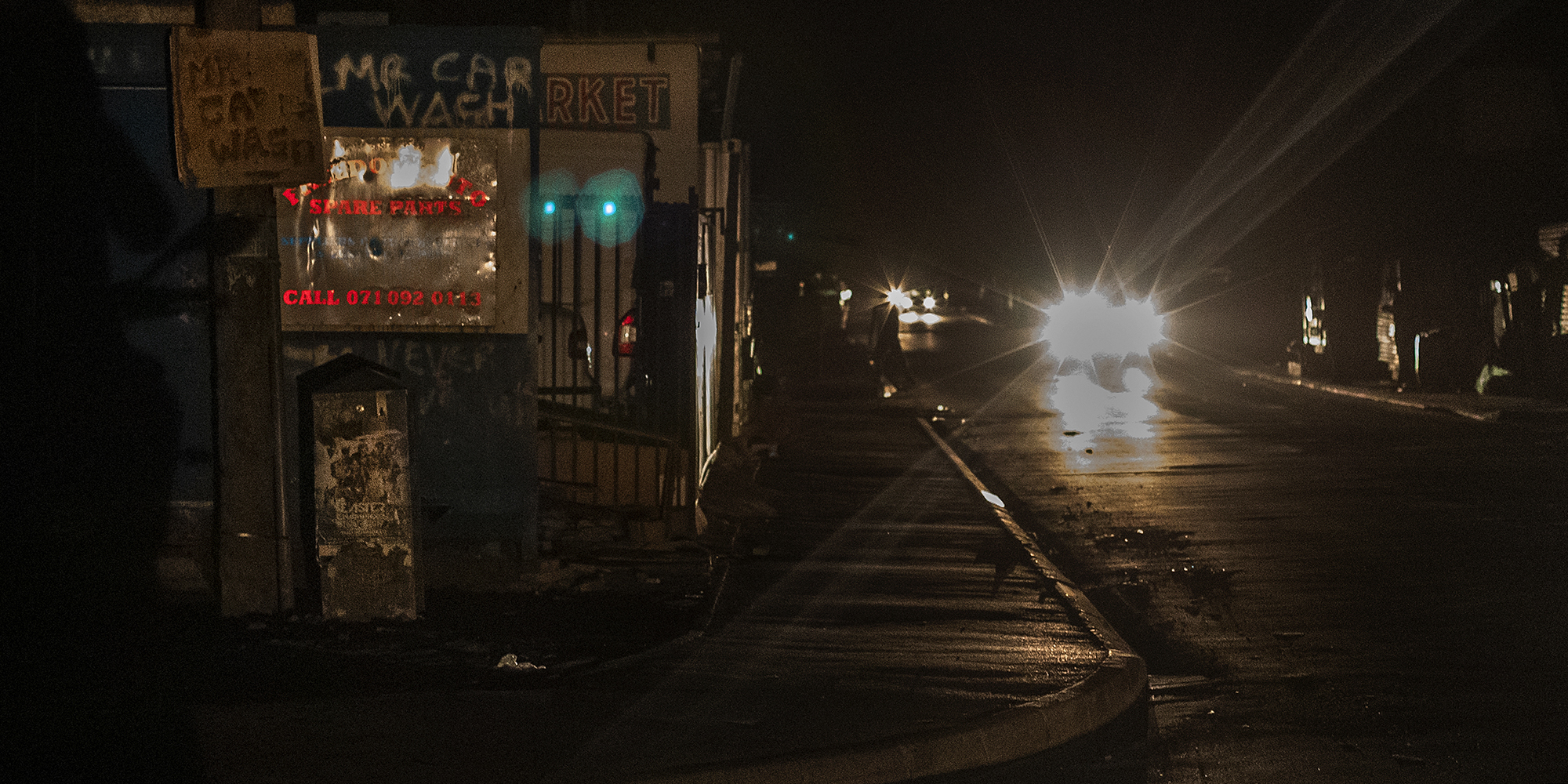 The main street in the impoverished neighbourhood of Masiphumelele in Cape Town, with vehicle lights the only illumination during rolling blackouts on 18 March 2019. (Photo: EPA-EFE / Nic Bothma)
The main street in the impoverished neighbourhood of Masiphumelele in Cape Town, with vehicle lights the only illumination during rolling blackouts on 18 March 2019. (Photo: EPA-EFE / Nic Bothma)
De Ruyter had to go because he tried to dismantle his own coal monopoly, the first Eskom CEO to do so.
“PG should be next, they believe,” said the government source. “PG” is the acronym for Public Enterprises Minister Pravin Gordhan. A different source in the Presidency read the moment as a “plan to bring down the economy and show up the Ramaphosa administration”.
Crisis talks fail
Ramaphosa failed to win the support of a multiparty front to tackle the problem after meetings on Monday, January 16.
The EFF immediately issued a media release slamming plans to take co-responsibility for blackouts and co-create a solution — Ramaphosa’s go-to position in a crisis.
The Democratic Alliance is seeking a court interdict of an 18.6% power price increase and also of Eskom’s rolling blackouts schedule.
The UDM’s Bantu Holomisa is fronting a bid with an influential grouping for a similar interdict (See Estelle Ellis’s report here); and Sakeliga, the Afrikaans business organisation told Rapport at the weekend that it would also go to court; in December it announced court action against load reduction. (Load reduction is Eskom’s reduced supply to municipalities which owe it R49.7-billion. See this report by Victoria O’Regan).
Organised agriculture has warned that South Africa’s food production is in peril; emergency services are struggling with phone lines going down and water taps are running dry as pump stations and treatment plants can’t operate without electricity. Not all are exempt as essential services.
The political crisis has built quickly for Ramaphosa, whose methods of persuasion and politics by committee are not working. This report showed that the interministerial Cabinet committee he set up as an emergency response has not been able to make a dent in power production and reform.
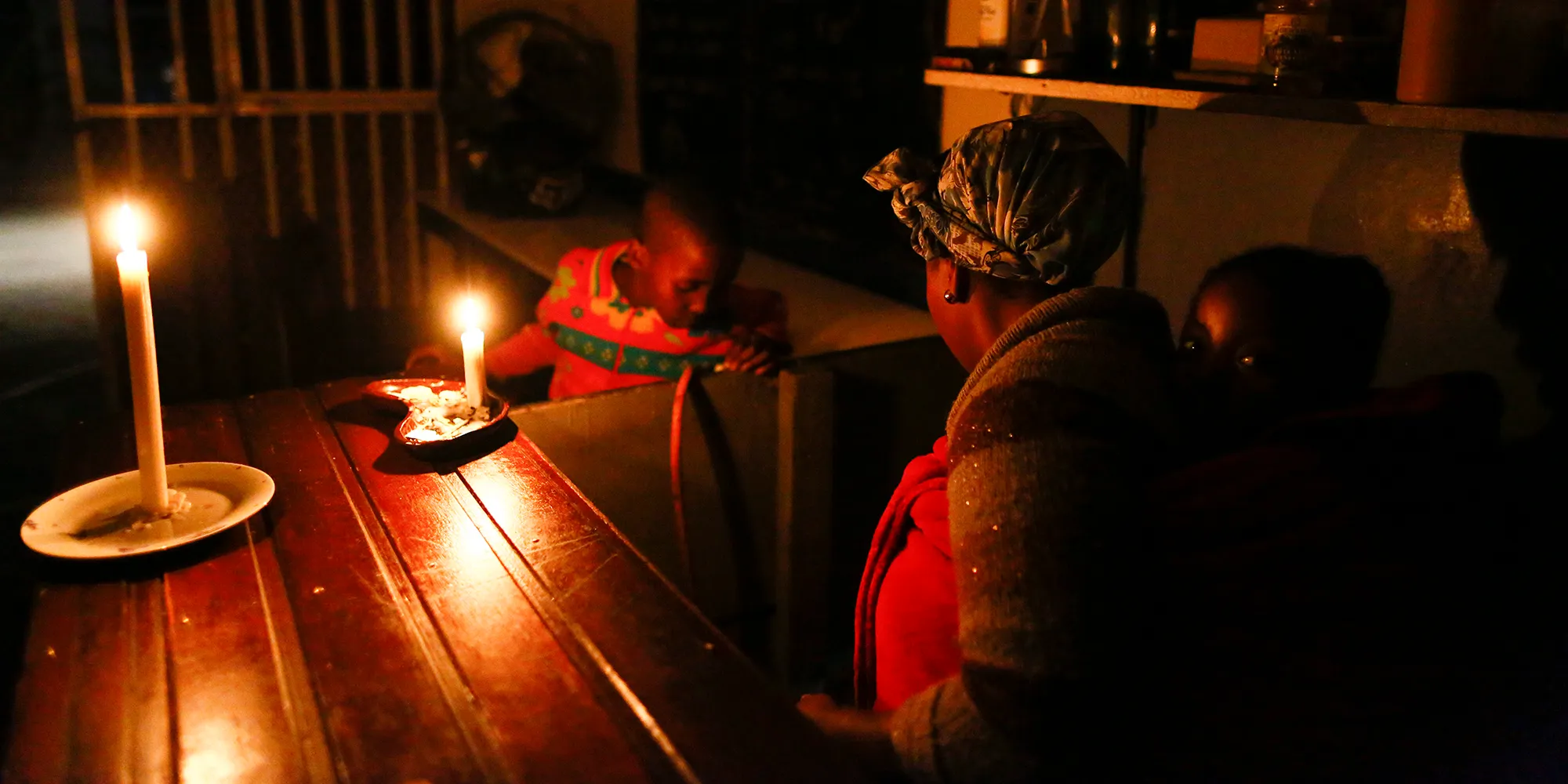 A woman carrying her daughter on her back runs her takeaway restaurant by candlelight during rolling blackouts in Masiphumelele, Cape Town, on 26 May 2015. (Photo: EPA / Nic Bothma)
A woman carrying her daughter on her back runs her takeaway restaurant by candlelight during rolling blackouts in Masiphumelele, Cape Town, on 26 May 2015. (Photo: EPA / Nic Bothma)
The Holomisa case has been brought by attorney Eric Mabuza, who is well-practised in cases against Ramaphosa, while the marquee advocate Tembeka Ngcukaitobi will argue the rolling blackouts interdict, which is also being brought by small black-owned businesses. (See this report by Nonkululeko Njilo on how the business of an ice cream vendor touted by Ramaphosa as an example of positive Covid-19 relief is melting away.)
Cabinet at odds and in denial
Ramaphosa’s Cabinet is at odds over the crisis, with dollops of denial. Mineral Resources and Energy Minister Gwede Mantashe has said he can fix the problem in six months once Eskom is tucked into his portfolio. Gordhan said in 2022 that all public shares in state-owned companies, including Eskom’s, would be housed in a State-Owned Enterprise Council to be set up in the Presidency — like Singapore’s Temasek model.
In a terse response to Mabuza’s letter, Gordhan said the government was taking advice:
“We want to assure the public that everything possible is being done to end or minimise load shedding. Those who are part of corruption, intimidation and abuse of procurement practices or obstruct government’s efforts to clean up each power station of such corruption, will face the might of the law.”
Visit Daily Maverick's home page for more news, analysis and investigations
Finance Minister Enoch Godongwana, who is leading South Africa’s team to the World Economic Forum meeting at Davos, told Reuters on Monday that Eskom had a management problem, not a diesel problem. He has refused to stump up the cash Eskom needs to keep the open-cycle gas turbines for emergency power running at full tilt. He said the fix on Eskom would take 12 to 18 months, but Ramaphosa may not have that long. He can’t gainsay Mantashe on Eskom because he has the bullish minister to thank for his second term as ANC president.
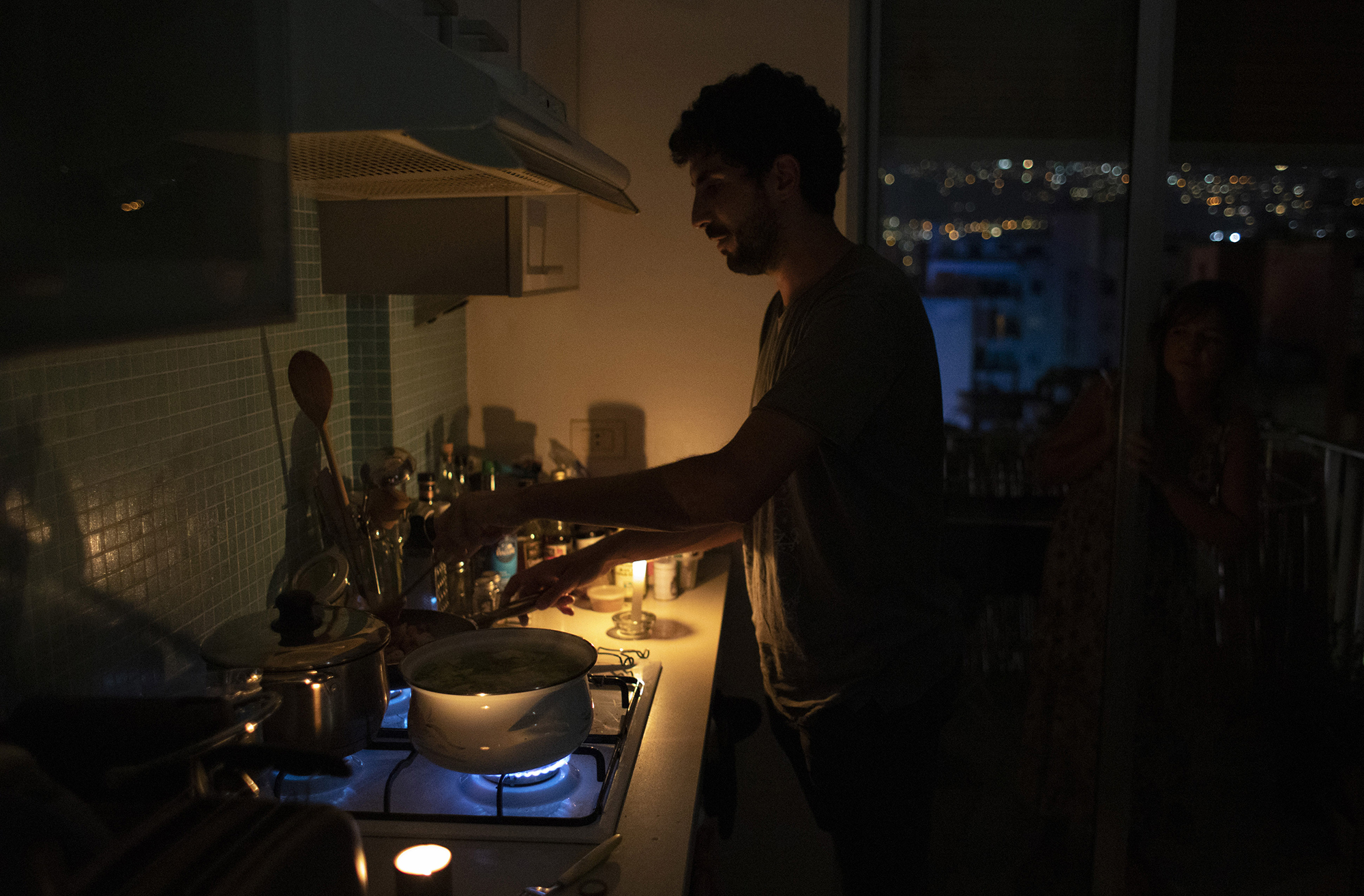 An NGO worker cooks pasta on a gas hob by candlelight during a blackout in Beirut, Lebanon, on 17 August 2021. (Photo: Francesca Volpi / Bloomberg via Getty Images)
An NGO worker cooks pasta on a gas hob by candlelight during a blackout in Beirut, Lebanon, on 17 August 2021. (Photo: Francesca Volpi / Bloomberg via Getty Images)
A business leader explained the power play to Daily Maverick last December. “The only route to [Ramaphosa] maintaining power is a quid pro quo between him and Mantashe where [the President] gives him [Mantashe] licence to follow [his version of] a balanced [energy] transition.”
Mantashe stands firm — like an oil rig in opposition to a clean energy-led transition. To survive, Ramaphosa may need to sacrifice Gordhan and dial back on the transition plans. But this comes with its own headaches as a new economy is being built on new energy.
“There’s a whole lot of anxiety on the part of donors,” said the Presidency source. They are asking: ‘Are we back-tracking on the just transition plans?’ ”
Eskom’s death spiral
One of the reasons the dilemma is so difficult to parse for Ramaphosa is that without the 18.65% increase granted by the regulator to Eskom, the utility can’t survive. The first chart, below, shows that without the reallocation of the regulatory clearing account from the fiscus to Eskom, without diesel bailouts (which fall under “IPPs” in the chart), it can’t continue as a going concern.
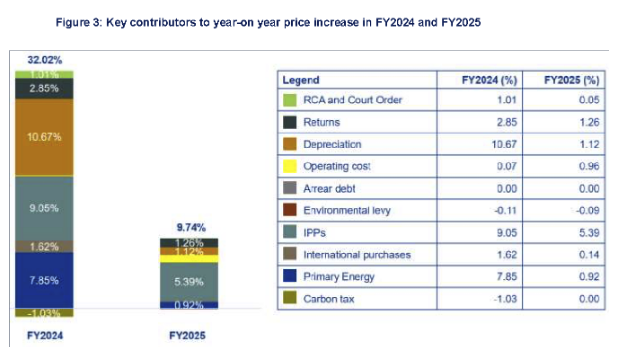 Source: Eskom’s multiyear price determination to Nersa.
Source: Eskom’s multiyear price determination to Nersa.
Godongwana is holding back on taking a portion of Eskom’s R390-billion debt on to the national balance sheet. The second chart, below, shows that Eskom is budgeting for lower sales, which means the exodus from the grid is gathering pace.
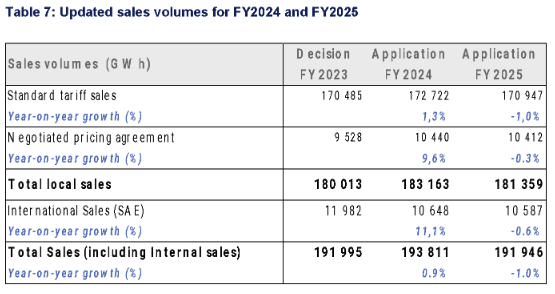 Source: Eskom’s multiyear price determination to Nersa.
Source: Eskom’s multiyear price determination to Nersa.
 Working in the dark during rolling blackouts. (Photo: Emile Hendricks / Foto24)
Working in the dark during rolling blackouts. (Photo: Emile Hendricks / Foto24)
“You can have a bully-boy huffing and puffing but the change is happening under our feet,” said the Presidency official.
Mantashe says he can fix Eskom in six months because there is “idle” capacity of 20,000MW. News24’s Kyle Cowan has shown, in this fact-check, why this is not so; there are units out on maintenance and regular outages, often attributed to sabotage.
 Source: Eskom’s multiyear price determination to Nersa.
Source: Eskom’s multiyear price determination to Nersa.
The third chart, above, shows that Eskom’s maintenance plan is scheduled until 2027, and without maintaining the cranky old fleet of coal-fired power stations, the grid can collapse. Any quick-fix solution will reduce the maintenance schedule and quicken the death spiral. DM




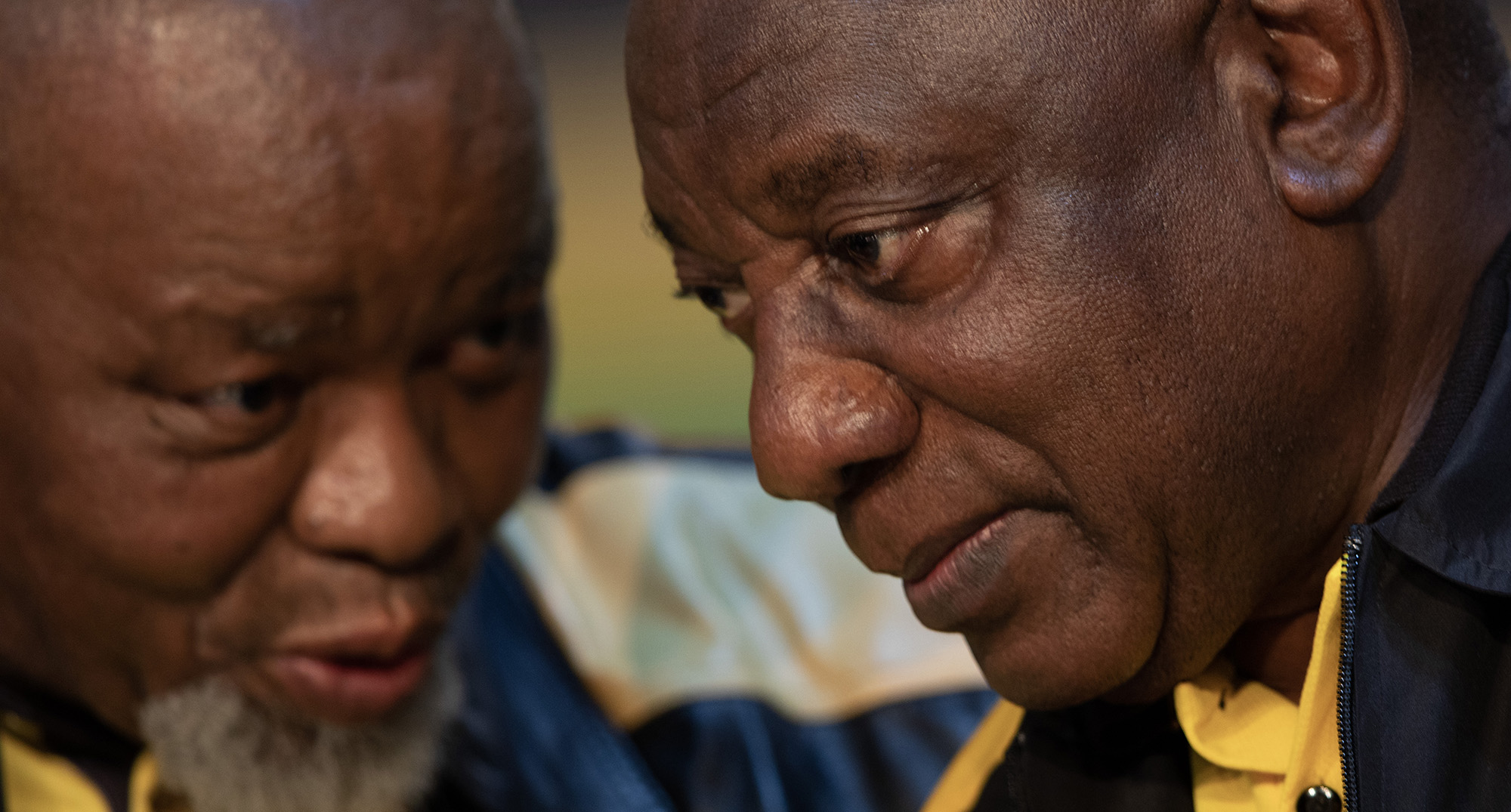 Source: Eskom’s multiyear price determination to Nersa.
Source: Eskom’s multiyear price determination to Nersa. 